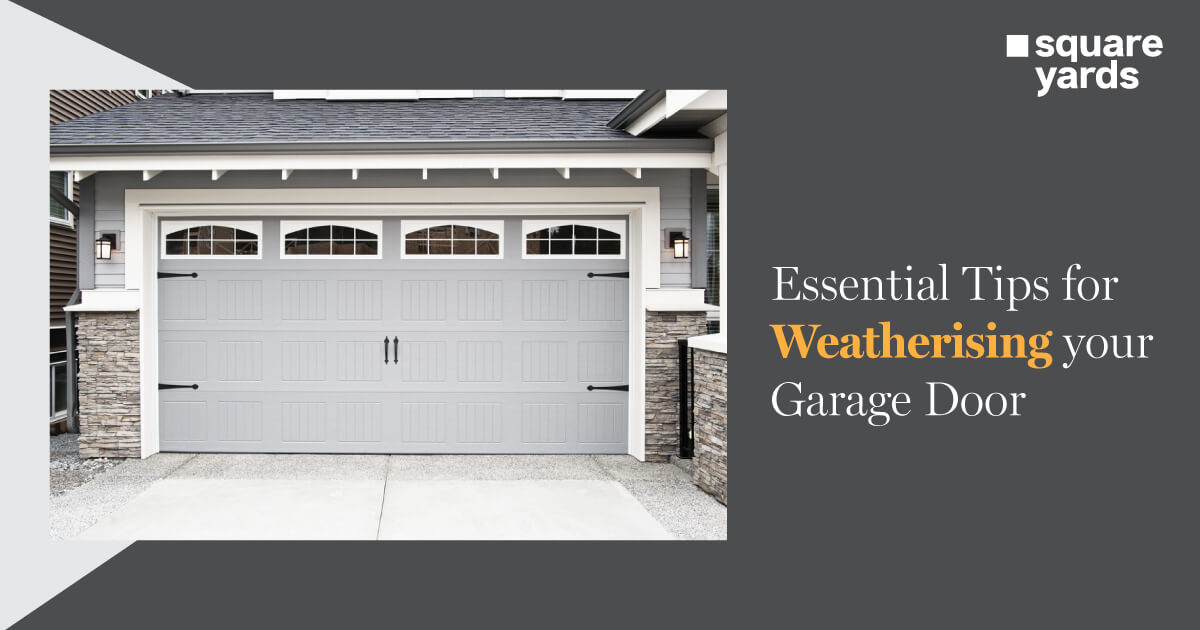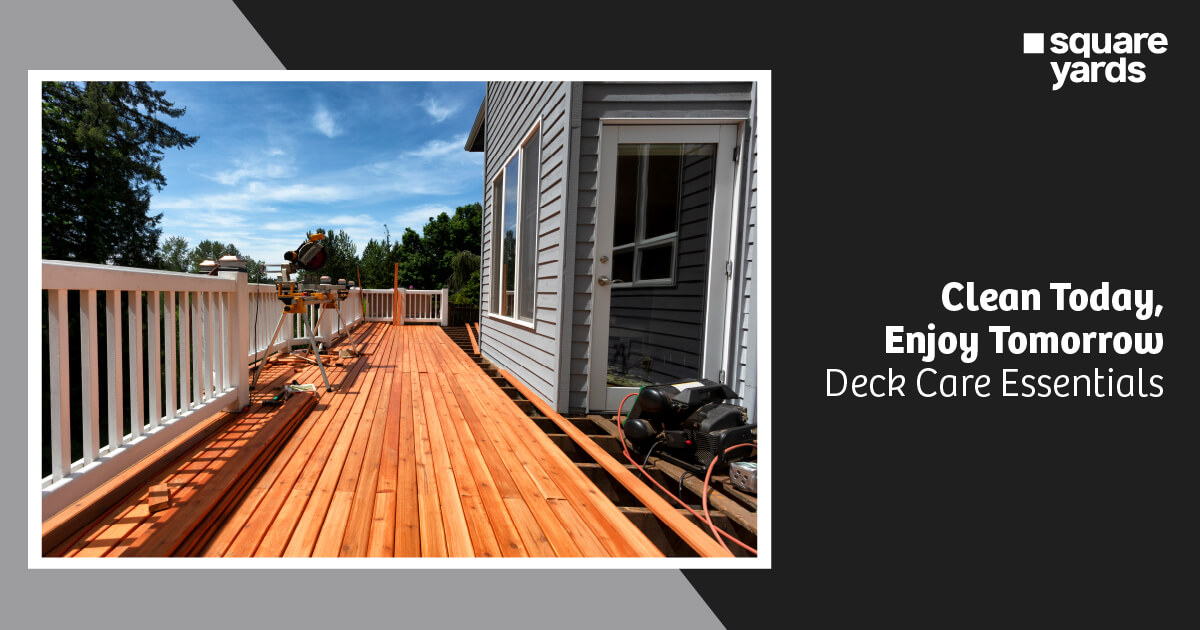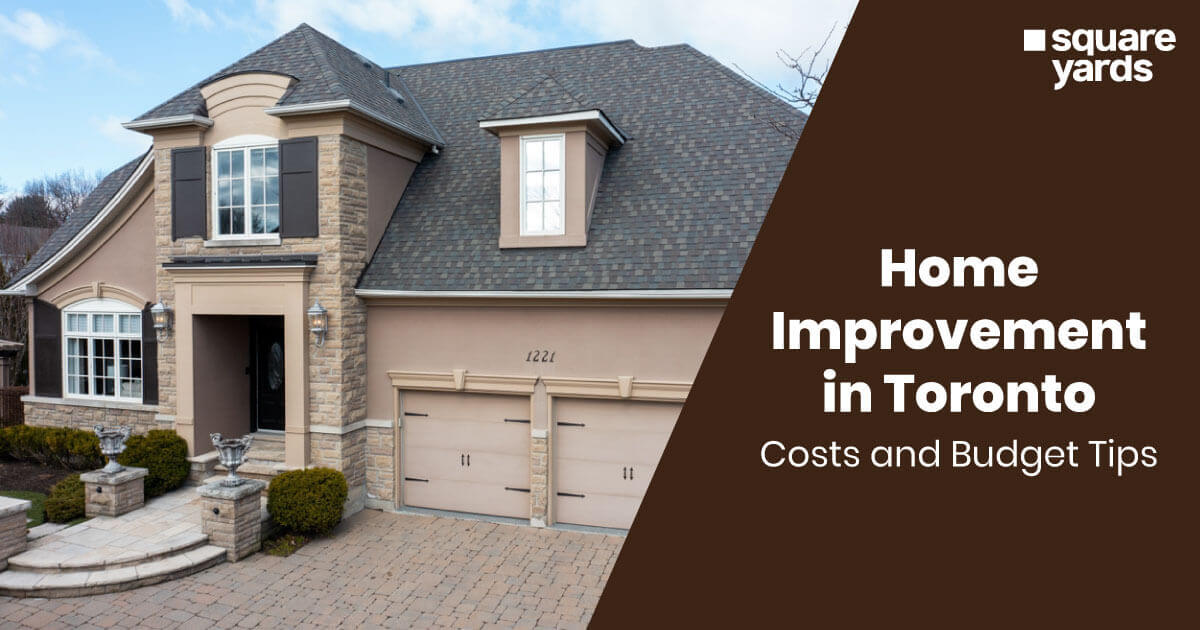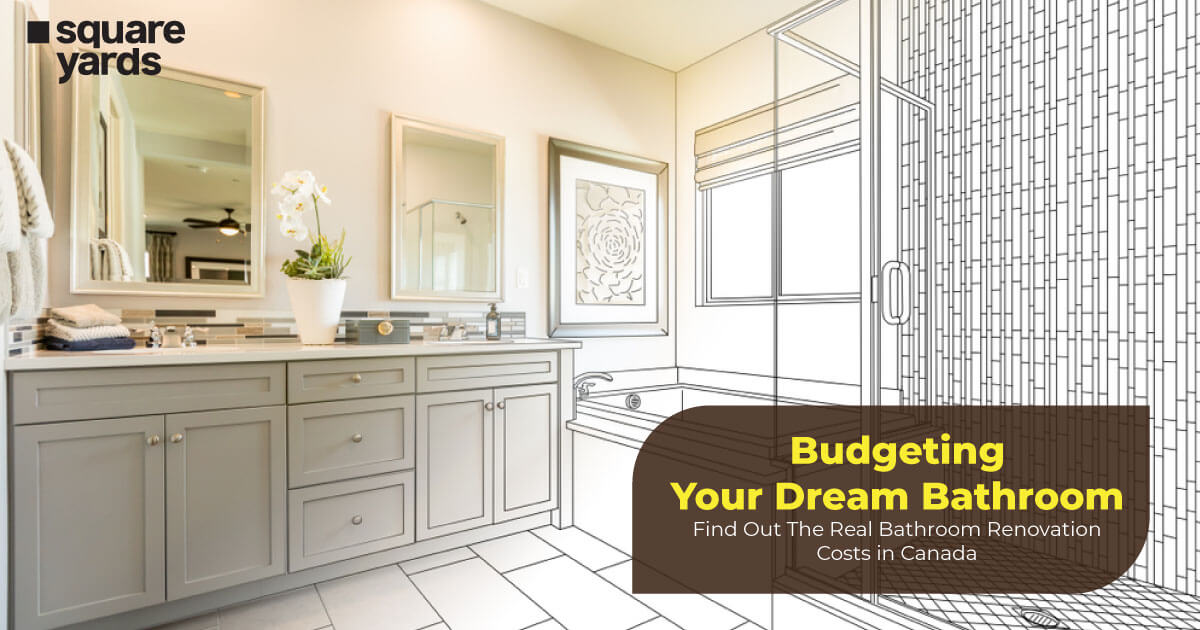With winter approaching, home improvements are necessary, including winter-proofing your garage to withstand the season. The garage acts as a buffer between the outdoors and your interior space and can be a source of heat dissipation during frigid temperatures. Winter-proofing your garage means adding garage door insulation and walls insulation replacing weather stripping and sealing air leaks. Winterising your garage increase energy efficiency and reduces heating costs during these winter freezing months.
This extensive guide delves into the advantages of winter-proofing a garage and provides tips to execute these tasks efficiently.
-
Declutter Your Garage
As the winter approaches, you can expect more snowy, muddy, and slush mess in your garage. Now is a good time to spruce up your garage space for home improvements. Sweep all dirt and debris from the floor and check for cracks, leaks, and any signs of pests. Make room and install shelves for your winter tools (shovels, salt bags, skis, and winter gear) to get organised.
-
Install New Weather-stripping
Weather-stripping is a material that ensures a tight seal between your garage door insulation and keeps cold air out of your garage. Over time, the weather-stripping gets brittle and shrinks, resulting in wear, tears, and gaps allowing the cold air to make its way inside the space. Before winter arrives, check your old weather-stripping and replace it with new to compress all the gaps.
-
Add Wall Insulation
In winter, insulate your garage walls to maintain the home’s interior temperature. Add fibreglass insulation to the walls and ceilings and the inside garage doors. Moreover, choose strong weather-resistant plastic to provide extra protection and seal everything with drywall. Strengthening your walls for winter may prove a more cost-effective solution than opting for a unit heater in your garage.
-
Sealing Air Leaks
In extremely frigid temperatures, you don’t want cold drafts seeping through windows and other doors. Check for air leaks around windows that can be closed by applying fresh caulking. Moreover, for air leaks around walls and doors, apply weather-stripping that creates a seal between your garage door and the door opening. Sealing these small holes will help combat any chances of freezing temperatures entering your living space.
-
Renovate your garage floor
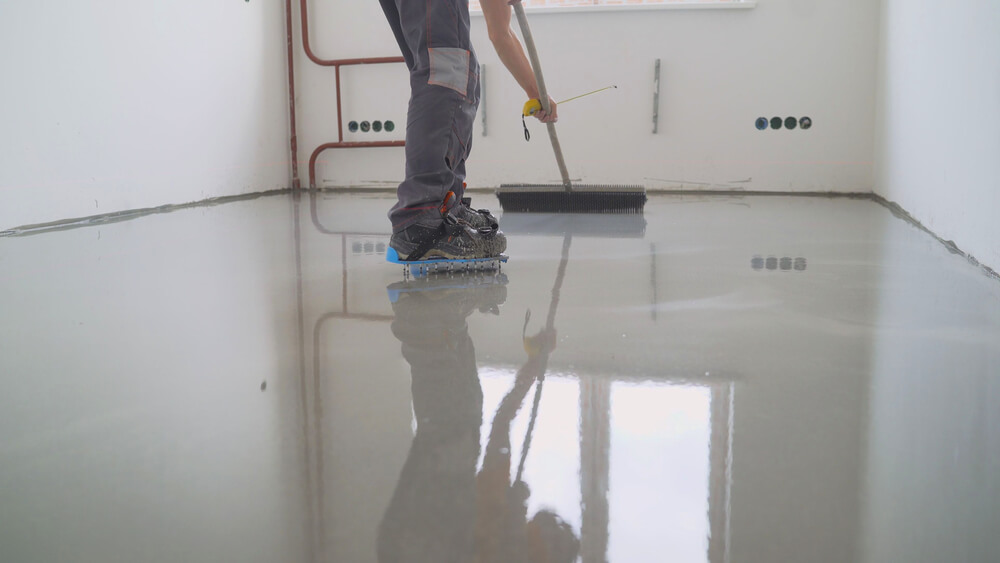
During the winter, you’re likely to notice mud, slush and salt clinging to your vehicle that pools up on the surface and degrades the garage floor with pits, chips, and cracks. To avoid this, create a protective barrier using a crystalline concrete agent, epoxy or waterproof paint. The epoxy and waterproof paints are easy to install and give a high-end look that boosts your home’s resale value.
-
Insulate Garage Door
Another way to winter-proof your garage is to add insulation to the door, as it is a conductor of heat dissipation in the winter. The single-panel doors contribute to energy inefficiency. If you have old uninsulated doors, replace them with new affordable options enhancing aesthetics and energy efficiency. You can DIY your garage doors during winter with a wide range of insulation kits, including fibreglass, reflective barriers and foam boards. For more guidance on winterising garage door insulation or home improvements, get in touch with the experts at Square Yards.
-
Protect your Pipes
Covering the exposed pipes prevent them from freezing and bursting while safeguarding the garage space. Insulating the walls, replacing weather-stripping, and caulking your doors and windows are a start for winterising your garage. However, cover your exposed pipes before the outside temperature freezes out to prevent damages and insurance claims.
-
Install a Heater
The last step in winter-proofing is to install a heater to keep your garage warmer during the cold months. Although weather-stripping and insulating walls prevent the cold air from getting inside, they don’t change the temperature. The heater will keep your garage space warm while preventing moisture on the garage floor and causing other damages. You can opt for wall-mounted heaters or portable heat pumps that take less floor space and insulate the room.
Benefits of Winter-Proofing Garage Door
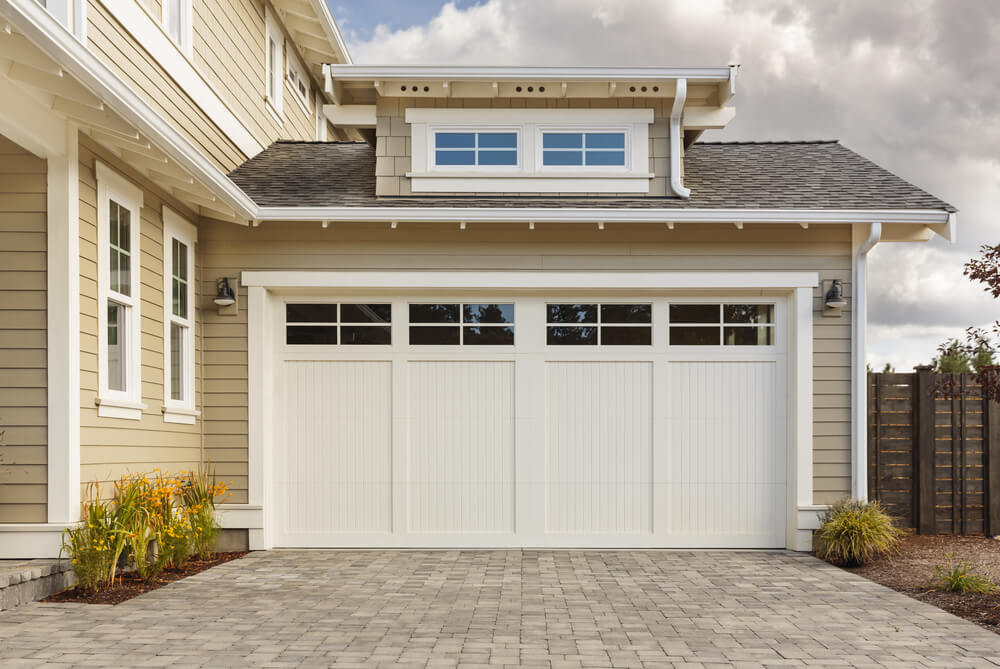
Winter-proofing your garage is worth the time and effort, providing many benefits from saving energy and adding aesthetic appeal and warmth to your home.
-
Enhance the Energy-Efficiency
An insulated garage door reduces heat loss in winter while saving energy and preventing hot air in warmer temperatures. This amplified climate control and moderate temperature inside the garage minimises the heating bills and cooling costs, thereby making the homes sustainable.
-
Increase Door Strength
Nowadays, insulated garage doors are fabricated with steel frames; filled with solid insulation, they are sturdy and lightweight. These doors are more resistant to rust as compared to their counterparts, non-insulated single-layer doors.
-
Protect Your Garage Pipes
Exposed pipes running through the garage may burst due to the freezing temperatures, which can cause disastrous consequences for your plumbing. Keeping the garage area warm is crucial to avert damage and to save money and time.
-
Provides Warmth in Your Homes
An insulated garage door will reduce the cold drafts that seep through the house from the garage, making it a comfortable habitat in your home. Additionally, to use the garage space as an extended living zone, insulate the wall and ceilings to form a warm and pleasant environment.
With these advantages, winter-proofing your garage is one of the best home improvement projects.
How To Prevent Garage Door Problems This Winter?
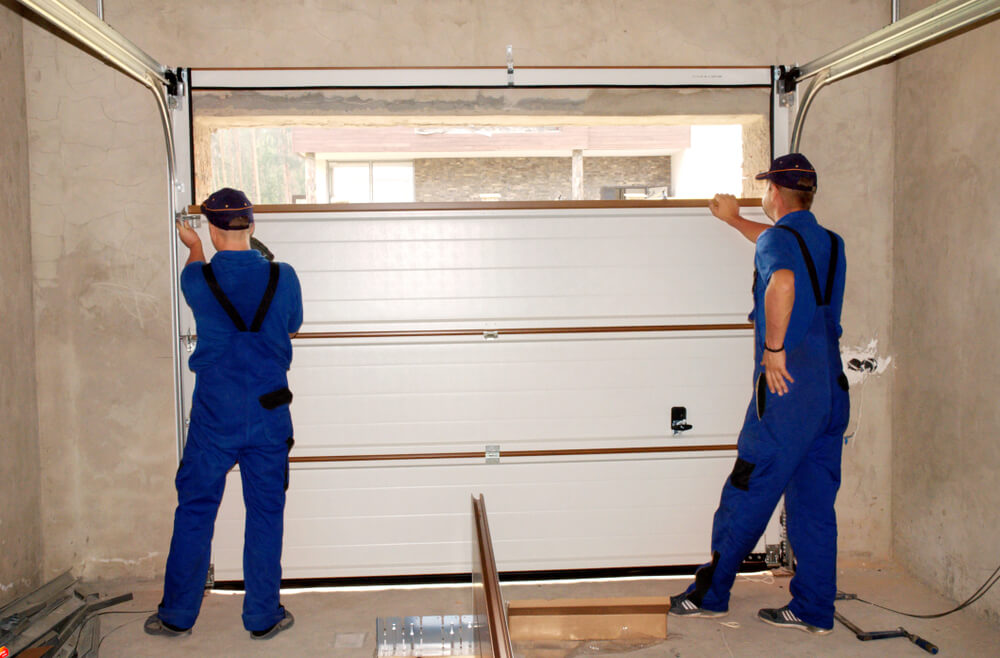
By maintaining your garage door, you can prevent garage door problems that plague homeowners when temperatures drop.
-
- In winter, lubrication issues can plague overhead doors, which can cause their proper functioning, the doors to make a high-pitched screeching noise, or could get stuck. To repair this problem, determine the ideal amount of lubrication as directed by your garage door experts.
- While in extreme temperatures, metal can warp and shrink, which could lead to misalignment of the door tracks. To avoid this issue, add more lubrication or contact a professional garage door installer.
- Consider installing a weather seal on all sides of garage doors to compress the gaps and keep the heat inside. Weather seals prevent rodents and other unwanted creatures from penetrating your garage homes.
In Nutshell
As winter is around the corner, weatherising your garage door is critical for enhanced comfort living. We hope this maintenance guide will ensure all the effective ways to get organised and execute the home improvement task for a merrier winter season!
You May Also Read :
| Garage Storage | Simple and Easy Garage Storage Ideas |
| Renovate Home | Tips For Selling A House |
| Modernize House | Ideas For Modernize House |
| Indoor House Plants | Guide To Indoor House Plants |
Frequently Asked Question (FAQs)
Why is it important to seal and insulate a garage door?
Given below are the benefits of garage door weather seals to protect your home: It protects from water and flooding conditions. Reduces energy bills and increases insulation. It keeps insects and rodents out of penetrating your home. Protect the garage door and prolong its lifespan.
Is it a good idea to heat your garage?
When the temperature drops, heating the garage can avoid several damages, including car functioning, broken appliances, and frozen pipes. A heated garage protects your home, saves the renovating cost and makes a comfortable environment in the surroundings.
How do you weatherstrip a garage door?
Weatherstripping is a material that ensures a tight seal between your garage door and keeps cold air out of your garage. Over time, the weatherstripping gets brittle and shrinks, resulting in wear, tears, and gaps allowing the cold air to make its way inside the space. Bottom Seal Threshold Seal Garage door panel weatherstripping A vinyl door stop with integrated weatherstripping.
How do I use my garage in the winter?
During the winter months, the temperature freezes below sometimes. Discover these tips on how to keep your garage warm and protect it from seasonal harm. Before the cold weather strikes, organise your storage items on the shelves and declutter the garage space. Insulate walls and windows to avoid cold air seeping into your living space. Caulk cracks and openings to provide garage protection in winter. Apply sealants to safeguard your garage floor. Protect your exposed pipes and invest in a space heater.

